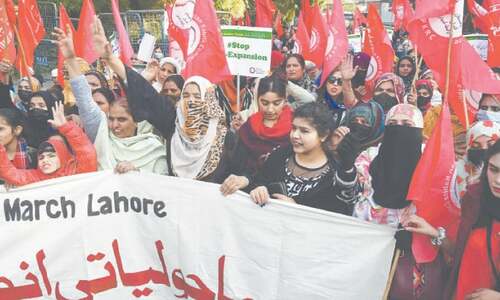
LOVERS of Urdu literature around the world this year are celebrating the 100th birth anniversary of eminent writer Shaukat Siddiqui (1923-2006). Widely admired as a progressive fiction writer, author of several celebrated novels, and a phenomenal journalist who was associated with the Times of Karachi, Morning News, and as editor with daily Musawat, Shaukat’s commitment to truth and social realism directed him throughout his literary journey.
Born on March 20, 1923, Shaukat belonged to the third generation of modern Urdu fiction writers comprising literary giants like, among others, Qurratul Ain Haider and Intezar Husain. Along with the other members of his legendary tribe, Shaukat played a critically influential role, leaving a lasting impact on the readers with his writings.
Shaukat tried to raise social and political awareness with his writings and earned his reputation as a progressive writer. His masterpiece novel, Khuda Ki Basti, is regarded as one of the most persuasive pieces of fiction picturing life in a Karachi slum built after independence in 1947.
The critics believe only a few novels have depicted such a realistic image of the life of the oppressed people in Karachi. Khuda Ki Basti got global fame and has been translated into more than 25 languages worldwide. It has seen more than 40 published editions to its credit. After remaining among the best-sellers of the early 1960s, the novel was produced twice as a TV serial, first in 1969 and then in 1974, with unparalleled audience engagement both times round.
Shaukat mostly presented stories depicting the poor and the burdened, and their exploitation. His reflections on the world of crime are indeed exemplary. He believed that no evil was more extensive than feudalism, whose eradication was indispensable for a nation’s progress. His expressions were straightforward. He talked to the readers in a language that they spoke on the streets because he spoke through characters who belonged there.

Another of his novels, the three-part Jangloos, is based on the socioeconomic problems of southern Punjab, and, as per expectation, though appreciated
by the masses, was derided by the feudal class. The novel is undeniably a thorough study of the region, surprisingly containing the tiniest particulars concerning culture and the life of the area, collected and highlighted with extreme articulation.
His literary work contains collections of short stories and several novels. Owing to his influential role in Urdu literature, Shaukat was awarded the Adamjee Literary Award in 1960, and the Lifetime Achievement Award in 2003 by the government.
Writers like him are born rarely and live forever in the hearts and minds of generations due to their literary finesse and creative articulation.
It is indeed necessary to provide an opportunity for the new generation to be introduced to his personality and work. The best way to do that can be through a revised curriculum as sugges- ted in a recent conference that took place as part of the celebrations of his 100th anniversary recently at the Urdu Department of the University of Karachi.
Dr Intikhab Ulfat
Karachi
Published in Dawn, July 18th, 2023













































Dear visitor, the comments section is undergoing an overhaul and will return soon.